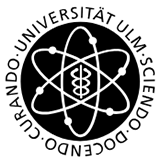Detailed introduction of the University of Ulm:
Introduction
The University of Ulm is a national university in Ulm, Baden-Württemberg, Germany. It was founded in 1967 and is one of the youngest universities in the state.
Overview
Number of students and faculty: As of the summer semester of 2018, there are 9,891 students and approximately 3,879 faculty, including 2,469 academic staff.
Subject areas: Covering natural sciences, medicine, engineering sciences, mathematics, economics and computer science, with more than 60 study programs taught in German and English.
History and establishment time
The idea of the University of Ulm dates back to the 1950s. In March 1961, the "Ulm University Working Circle" proposed the idea of its creation. In January 1966, it was approved by the Baden-Württemberg State Government. It was officially established on February 25, 1967 and was awarded the title of "Comprehensive University" on July 4 of the same year. Title.
School Strength
Teaching Strength: Provide students with high-quality academic education, focus on continuous optimization and improvement of teaching, integrate the latest research results into the curriculum, and ensure the cutting-edge nature of disciplines and content. It also provides continuing education for in-service personnel to impart professional knowledge and management skills.
Scientific Research Strength: As a research-oriented university, it has strong scientific research strength and has achieved success in both basic research and applied research. In 2009, the research funding from third parties reached 67.5 million euros, and it has multiple cooperative research centers and a cluster of excellence. It is considered one of the best universities in the world in optoelectronics, integrated circuit design, microelectronics and other disciplines, and its electronic engineering and computer fields are among the top 5 German universities.
Faculty: It has a high-quality faculty team, including many "highly cited researchers". The teachers are not only fruitful in academic research, but also able to provide students with good teaching and guidance.
Institutional Nature
Public University.
Educational Philosophy
Emphasis on interdisciplinary research, internationalization and innovation. It is committed to promoting extensive cross-disciplinary cooperation and cultivating students' interdisciplinary thinking and innovation capabilities to meet future global challenges. Actively promote international education, carry out cooperation and exchanges with universities and research institutions around the world, and provide students and researchers with a broad international perspective and exchange opportunities.
Key laboratories and disciplines
Key laboratories: It has multiple research centers established in cooperation with enterprises, such as research centers established by Daimler, BMW, Siemens and other companies around the campus. In addition, the school has some research institutes focusing on applied research.
Key disciplines: Economic mathematics ranks first in Germany, and it is the university with the most courses of the German Actuarial Association. In addition, disciplines such as medicine, natural sciences, engineering sciences, and computer science also have strong strengths, and research in optoelectronics, integrated circuit design, microelectronics, biomedicine and other fields is at the international leading level.
Department settings
The school has 4 departments, as follows:
Department of Engineering, Computer Science and Psychology: including the Institute of Electronic Devices and Circuits, the Institute of Energy Transmission and Conversion, the Institute of Information Technology and other research institutes, covering electronics, computer science, software engineering, artificial intelligence, psychology and pediatrics.
Department of Mathematics and Economics: There are Institute of Analysis, Institute of Applied Analysis, Institute of Financial Mathematics, etc., and the majors include mathematics, economics, finance, accounting, insurance, etc.
School of Medicine: Contains majors such as clinical medicine and dentistry, as well as related medical research institutions and affiliated hospitals.
School of Natural Sciences: Consists of the School of Biology, the School of Chemistry, the School of Physics, etc., covering basic natural science disciplines such as biology, chemistry, and physics.
Ranking
Comprehensive ranking: Ranked 193rd in the world in the 2024 THE World University Rankings and 19th in Germany.
Special ranking: Economic mathematics ranks first in Germany.
Fees
Tuition: As a public university in Germany, tuition is usually not charged, but a certain registration fee is required each semester, which is about 150-300 euros.
Living expenses: The living expenses in Ulm are relatively moderate, and the monthly living expenses of students are about 700-1000 euros, including accommodation, food, transportation, books, etc.
Campus
Campus environment: The campus is located on the Oberer Eselsberg mountain in the north of Ulm, with green trees and beautiful environment, and is only a ten-minute drive from the city center. The campus has modern architectural style and a good learning and research atmosphere. There are also relevant facilities such as university hospitals around the campus.
Campus facilities: The school's teaching facilities and scientific research equipment are advanced and complete, such as the library with rich collections and excellent laboratory equipment, which can meet the students' learning and scientific research needs. In addition, the school also has a college of science, industry and technology, which provides various professional training and continuing education courses for students and the public, and a language center that provides students with a variety of foreign language training.
-

Heidelberg University
-

University of Freiburg
-

University of Jena
-

University of Marburg
-

University of Rostock
-

University of Halle-Wittenberg
-

University of Bayreuth
-

Leipzig University
-

University of Tübingen
-

Humboldt University of Berlin
-

Mesoamerican University
-

Istmo University
-

Mariano Galvez University of Guatemala
-

Regional University of Guatemala
-

Galileo University
-

Francisco Marroquín University
-

Rafael Landívar University
-

University of the Valley of Guatemala
-

University of San Carlos of Guatemala
-

Technological Institute of Tlaxcala Plateau
-

Golfo University
-

Technological University of South Sonora
-

Technological University of Huejotzingo
-

Tizimín Institute of Technology
-

Chilpancingo Institute of Technology

